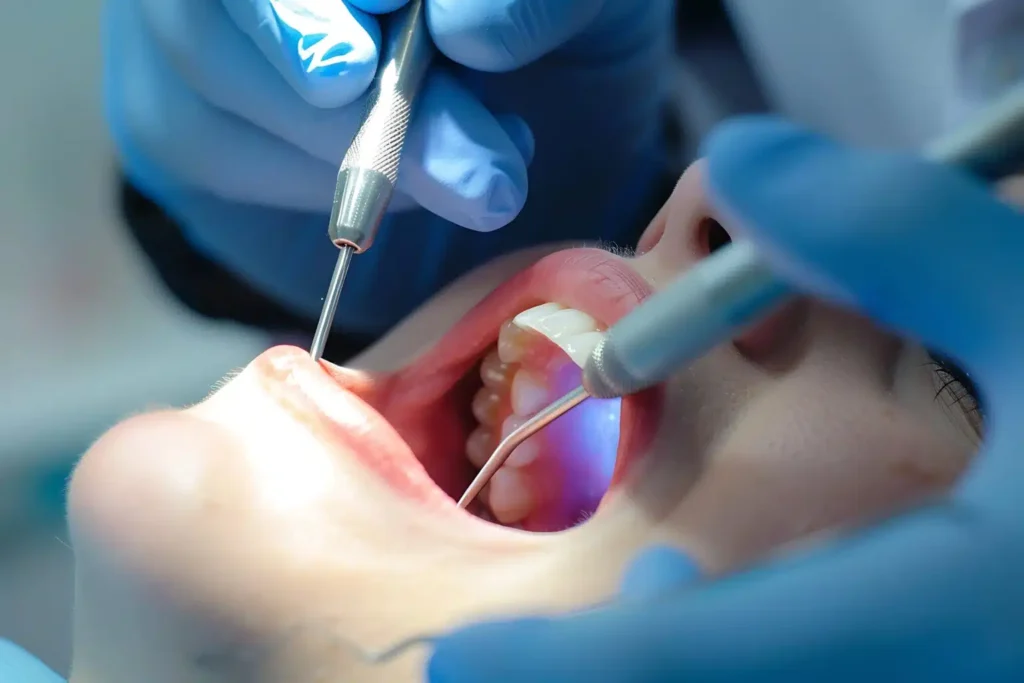Root canal treatment is one of the most effective ways to save a tooth that has been severely damaged or infected. Many patients fear the procedure, often associating it with pain and discomfort, but the reality is that root canal therapy in Murrieta is a routine, highly successful treatment that alleviates pain and restores oral health. If you’re experiencing persistent tooth pain, sensitivity, or swelling, it may be time to consult a dentist in Murrieta, CA, to determine if a root canal is necessary.
Understanding Root Canal Treatment
A root canal is a dental procedure designed to treat infection or damage inside the tooth. Each tooth contains a soft tissue known as the pulp, which houses nerves, blood vessels, and connective tissues. When the pulp becomes infected or inflamed due to decay, trauma, or cracks, it can lead to severe pain and complications if left untreated.
During root canal therapy in Murrieta, the infected pulp is carefully removed, and the inner chamber of the tooth is cleaned, disinfected, and sealed to prevent further infection. A crown is often placed over the treated tooth to restore its strength and function. Thanks to modern dental technology and anesthesia, the procedure is no more uncomfortable than getting a routine filling.
Common Symptoms Indicating the Need for Root Canal Treatment
Recognizing the signs of a dental infection early can prevent more extensive damage and the need for an extraction. Some of the most common symptoms indicating the need for root canal treatment include:
Persistent Tooth Pain
If you experience lingering or severe tooth pain, particularly when chewing or applying pressure, it may indicate an infection inside the tooth. This type of discomfort often doesn’t subside on its own and typically worsens over time.
Prolonged Sensitivity to Hot and Cold
Occasionally feeling sensitivity when eating something hot or cold is normal, but if the sensitivity lingers for an extended period, it could be a sign of nerve damage within the tooth.
Swollen or Tender Gums
Gum swelling, redness, or tenderness around a specific tooth may indicate an underlying infection. Some patients may also develop a small pimple-like bump on the gums, known as a dental abscess, which can release pus and have an unpleasant taste.
Tooth Discoloration
A darkening or graying tooth may suggest that the nerve inside is damaged or dying. This often occurs after trauma to the tooth or an untreated infection affecting the pulp.
Loose Tooth
An infected tooth may become loose due to damage to the supporting bone structure. This can be a sign of significant internal decay that requires immediate attention.
Ignoring these symptoms can lead to further complications, including the spread of infection to surrounding teeth and bone. Seeking early treatment from a dentist in Murrieta, CA, can help preserve your natural tooth and prevent serious oral health issues.
The Causes of Root Canal Infections and Damage
Root canal infections occur when bacteria enter the pulp, leading to inflammation and eventual tissue death. Several factors can contribute to this condition, including:
Untreated Cavities
When cavities are left untreated, bacteria penetrate deep into the tooth, eventually reaching the pulp. Once bacteria invade the inner chamber, a simple filling is no longer sufficient, and a root canal becomes necessary to remove the infection.
Cracked or Chipped Teeth
A cracked or chipped tooth can expose the pulp to harmful bacteria, increasing the risk of infection. Even small, unnoticeable cracks can allow bacteria to seep into the tooth’s interior, leading to pain and inflammation.
Dental Trauma
A tooth that has been injured due to a fall, accident, or sports-related impact may sustain internal damage that affects the pulp. Even if the tooth appears intact, the nerves inside could be damaged, necessitating a root canal.
Multiple Dental Procedures on the Same Tooth
Repeated dental work on the same tooth, such as fillings or crowns, can weaken its structure and increase the likelihood of infection or nerve damage.
Gum Disease
Severe periodontal disease can lead to infections that affect the surrounding bone and eventually the tooth’s root. In some cases, the infection spreads to the pulp, requiring a root canal to eliminate bacteria and save the tooth.
The Importance of Early Detection and Diagnosis
Catching a root canal infection early is crucial for preserving the tooth and preventing more extensive dental procedures. Many people delay treatment out of fear or uncertainty, but postponing a necessary root canal can result in worsening pain and even tooth loss.
During a dental examination, your dentist in Murrieta, CA, will take X-rays to assess the extent of the infection and determine if a root canal is the best course of action. In some cases, patients may not experience severe symptoms, but their dentist may identify an issue through imaging and recommend early intervention.
Prompt treatment can:
● Prevent the infection from spreading to other teeth or the jawbone
● Reduce the likelihood of needing a tooth extraction
● Preserve the function and esthetics of your natural tooth
● Minimize the risk of long-term complications that could require costly dental procedures
If you suspect you have a root canal infection, scheduling an appointment with a dentist in Murrieta, CA, as soon as possible can help protect your oral health.
Alternatives to Root Canal Treatment
While a root canal is often the most effective way to save an infected tooth, some patients may consider alternative treatments. However, these options come with their own risks and limitations.
Tooth Extraction
In cases where a root canal is not possible or the tooth is too damaged to save, extraction may be necessary. Removing the infected tooth eliminates the infection, but it also leaves a gap that can cause surrounding teeth to shift over time. To restore function and esthetics, an extracted tooth is usually replaced with a dental implant, bridge, or partial denture.
Pulp Capping
For cases where the infection has not fully penetrated the pulp, a dentist may attempt a pulp capping procedure, which involves placing a protective material over the exposed pulp to encourage healing. However, this is only effective for minor infections and is not a long-term solution for severely damaged teeth.
Antibiotic Treatment
Antibiotics may be prescribed to control the spread of infection, but they do not eliminate the bacteria inside the tooth. If the pulp is infected, a root canal is still necessary to fully remove the bacteria and prevent further damage.
When considering alternatives to root canal treatment, it’s essential to weigh the benefits and potential drawbacks. In most cases, root canal therapy in Murrieta remains the best option for preserving a natural tooth and preventing more extensive dental work in the future.
Final Thoughts
A root canal is a safe and effective procedure designed to eliminate infection, relieve pain, and restore the function of your tooth. If you are experiencing persistent tooth pain, sensitivity, gum swelling, or discoloration, seeking early treatment from a dentist in Murrieta, CA, can prevent further complications.
While alternatives like tooth extraction exist, preserving your natural tooth through root canal therapy in Murrieta is often the best long-term solution. By addressing the infection early and following proper aftercare, you can maintain a healthy, functional smile for years to come. If you’re experiencing any signs of a root canal infection, schedule an appointment today to get the expert care you need.


